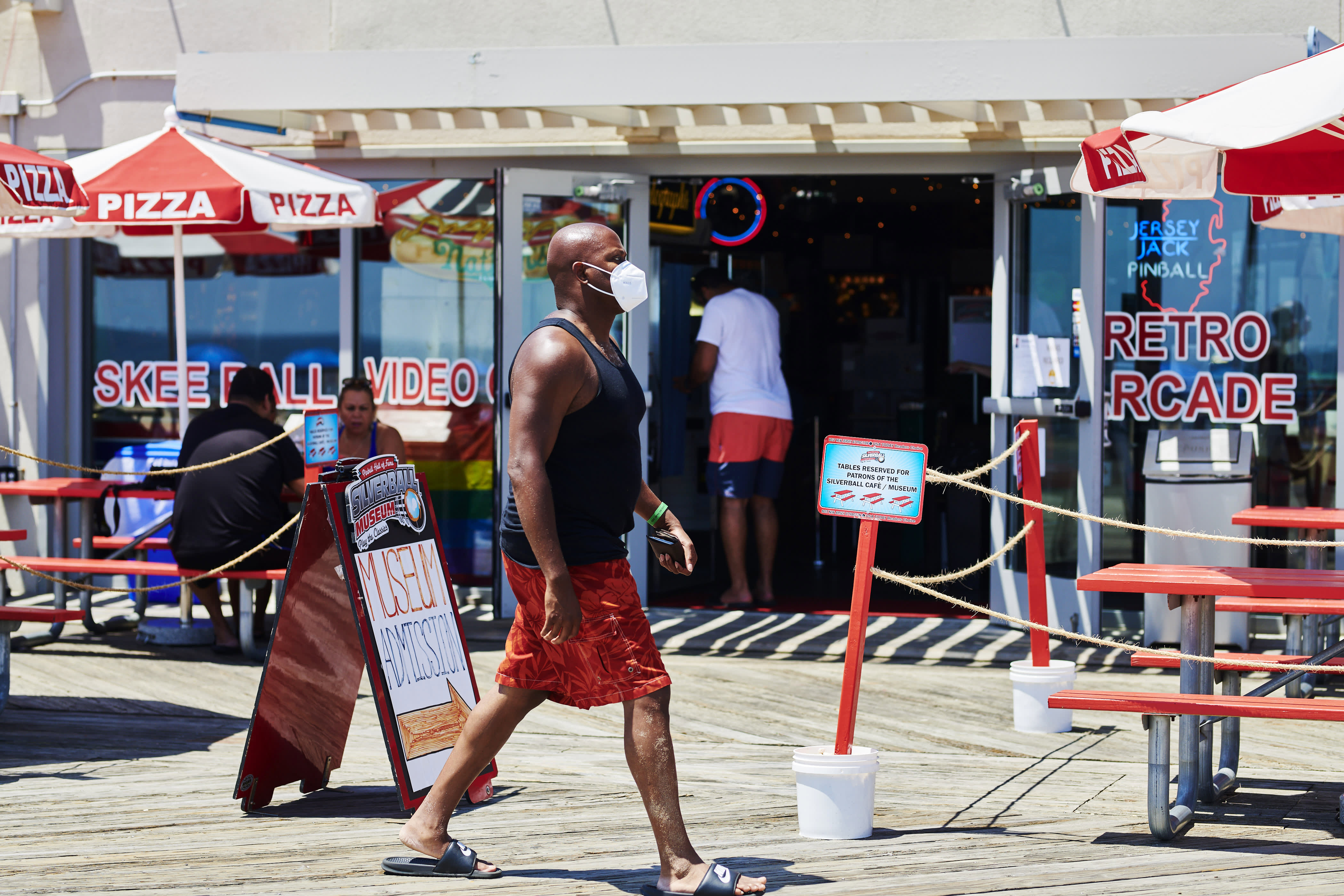A pedestrian wearing a protective mask walks along the boardwalk in Asbury Park, New Jersey, U.S., on Thursday July 9, 2020.
Gabby Jones | Bloomberg via Getty Images
Along the Eastern Shore beaches that span our home states of Maryland and Delaware, the summer season – usually a boon to our economy – is a shadow of its normal self.
Business owners in our beach towns typically endure losses for as many as 10 months of the year, then staff up for a seasonal frenzy that, hopefully, ekes out enough profit to make it to the next year. For the iconic surf shops, ice cream parlors, and pizza places that line the boardwalks of Rehoboth Beach, Del. and Ocean City, Md., though, the COVID-19 pandemic has changed all of that.
Federal aid through the Paycheck Protection Program (PPP) and other initiatives enacted by Congress has flowed to small businesses like these, but it has been too little for many. Thankfully, we were able to extend PPP for another five weeks, but many businesses simply are facing the reality they may not survive, and those on the brink tend to have little cash reserves or access to credit. Across America, these vulnerable small businesses are also disproportionately women-, veteran-, or minority-owned.
That’s why we’re working to pass legislation that does two things: First, make PPP funds available to eligible businesses through at least the end of this year, and second, authorize a second round of forgivable loans to the businesses most severely impacted by the pandemic.
Without aggressive new support for endangered businesses, this flagship relief program will fail to match the nature of this crisis.
We want to double down on PPP because, despite its bumpy beginning, it has clearly worked and staved off millions of business closures and job losses. Because of the work of some 5,500 banks and community financial institutions, small businesses across America were able to access badly needed cash they’re now using to pay or rehire workers and stay afloat.
Now, with recent changes passed by Congress, businesses have additional flexibility in how they use those funds, enabling more to have their loans forgiven. Most importantly – the money American small businesses need has already been passed by Congress; because the PPP program still has $130 billion in unspent funds, the program can handle a second, targeted round of lending, which we’re calling the Prioritized Paycheck Protection Program, or P4.
The P4 loan would be available to businesses with fewer than 100 employees that experienced a quarterly revenue loss of 50% or more, relative to the same quarter in 2019. The amount of the loan could be just as large as was allowed for the first round of PPP lending. To make sure that the very smallest employers receive their share of support, our bill reserves either $25 billion, or 20% of the program’s funding, for businesses with 10 or fewer workers.
Without aggressive new support for endangered businesses, this flagship relief program will fail to match the nature of this crisis.
More than half of workers in the arts, entertainment, and recreation industry lost their jobs between February and April, and nearly half of those in accommodation and food services lost their jobs. Compare these numbers to those of the finance and insurance industry, which shed only 0.5% of its jobs in the same period, and it’s clear that business relief should actually be scaled based on need.
Some of our Senate colleagues have envisioned new small business relief programs altogether, but the reality is that the most endangered small businesses need help now and standing up new federal program takes time. Consider that the Main Street Lending Program, PPP’s cousin set up by the Federal Reserve to aid midsize businesses, is still getting off the ground.
The federal government has provided hundreds of billions of dollars to help American businesses get through this crisis, but there’s more work left to do. By simply repurposing money already passed by Congress for another round of targeted aid to small businesses, we can save thousands of endangered small businesses, the jobs they provide, and the American Main Streets and boardwalks they make possible.
Democratic U.S. Sens. Ben Cardin and Chris Coons represent Maryland and Delaware respectively.
